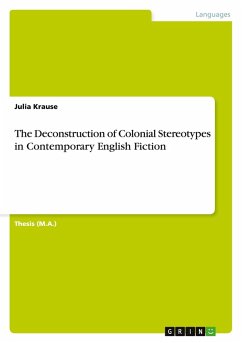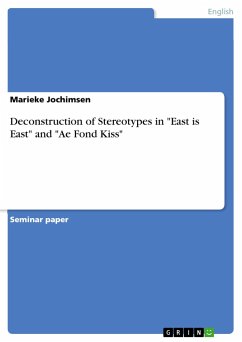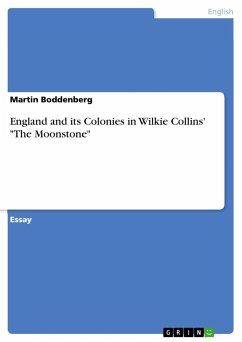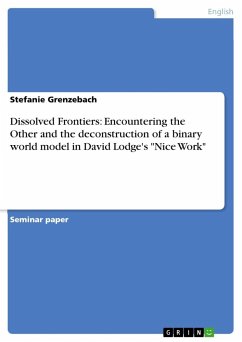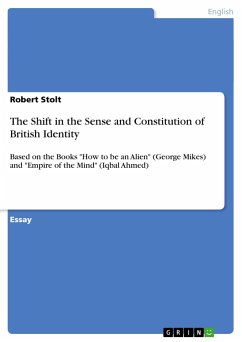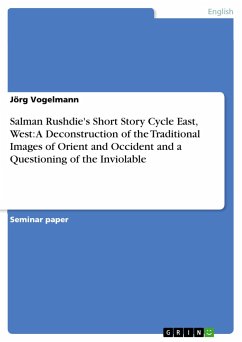Thesis (M.A.) from the year 2009 in the subject Didactics for the subject English - Literature, Works, grade: 1,15, University of Göttingen, language: English, abstract: We are told about the world before we see it. We imagine most things before we experience them. And those preconceptions, unless education has made us acutely aware, govern deeply the whole process of perception (Lippmann: 90).In defining the nature of stereotypes Walter Lippmann in 1922 explained one of the governing principles of human perception and human relationships. Although his theory on Public Opinion did not exclusively allude to the relationship between coloniser and colonised, his work laid the foundation of the historical, cultural and literary investigation and understanding of the mechanisms of colonial control through the power of stereotyping. By shaping the world they perceived according to their beliefs, moral codes and attitudes, including those concerning the people and lands they occupied, colonisers have ever since dominated their colonies not only through military strength and physical violence but also through their views. [...]The aim of my work will partly be to demonstrate the major tropes of colonial stereotypes and their functioning in some selected literary pieces of High Imperialism, which approximately stretches from the reign of Queen Victoria (1837-1901) to the end of the First World War (1918). As the "jewel in the crown" (Laisram: vii), India has long caught the most attention of all the British colonies, and even fascinated politicians, writers, and philosophers of other European nations. Due to this fact, I have chosen to focus on literary pieces that refer to this richest colony of the British Empire only. [...]However, the main part of my work will concentrate on the aftermath of colonialism, i.e. the dealings of colonial stereotypes in contemporary English fiction.[...]The basic question will thereby be whether the selected writers William Sutcliffe, Pankaj Mishra, Ruth Jhabvala and Anita Desai succeed in questioning and finally reversing colonial stereotypes in their narratives of East-West encounters - or whether they fall back on the images of the colonial legacy. Are Orient and Occident still two opposite poles in the perception of today's world? Is there still an East-West divide between those formerly colonised and those formerly colonising as Edward W. Said stated in his 1978 published and highly influential theory on Orientalism?
Hinweis: Dieser Artikel kann nur an eine deutsche Lieferadresse ausgeliefert werden.
Hinweis: Dieser Artikel kann nur an eine deutsche Lieferadresse ausgeliefert werden.

